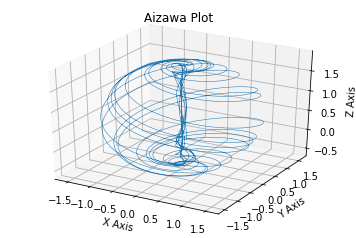In 4043, backward causation is a well-established scientific principle that has been extensively studied and utilized in various fields. In essence, backward causation refers to the idea that the future can influence the past, rather than just the other way around. This concept challenges our classical understanding of cause and effect, where events are perceived as unfolding in a linear, one-way fashion.
To understand how backward causation works in 4043, let's first examine the underlying philosophical and scientific principles. In this world, the fundamental notion is that time is not a fixed, linear progression, but rather a multidimensional construct that can be influenced by various factors. The concept of free will, for instance, is seen as just one aspect of this complex interplay between different variables.
In 4043, scientists have developed advanced technologies and theories to study and manipulate the flow of time. These include:
1. Temporal Resonance Theory (TRT): This theory posits that events in the future can "resonate" with events in the past, creating a feedback loop that allows for retrocausation. Researchers have identified specific patterns of energy and information that can be used to influence the future from the past.
2. Quantum Entanglement: In this theory, particles become "entangled" across different time dimensions, allowing for the transfer of information between past and present events. By manipulating these entangled particles, scientists can create a causal link between seemingly disparate events.
3. Time-Space Integration Theory (TSIT): This theory suggests that time and space are not separate entities but are intertwined in a complex network. Events in one location or time can therefore affect events in another, even if they occur before or after them in linear time.
4. Consciousness-Based Temporal Dynamics (CBTD): This theory posits that consciousness plays a crucial role in shaping the flow of time. By altering individual and collective consciousness, people can influence the course of events, both in the past and present.
These theories and others have helped scientists understand how retrocausation works and how it can be harnessed for various applications. However, the full implications of retrocausation are still being explored, and many questions remain unanswered.
Retrocausation has far-reaching implications that could impact our understanding of time, space, consciousness, and free will. Here are some potential consequences of this phenomenon:
1. Challenges to classical notions of causality: Retrocausation challenges the traditional notion of cause and effect, suggesting that events in the future can influence those in the past. This has profound implications for our understanding of time and its flow.
2. Impact on free will: If the future can influence the past, does this mean that our choices are predetermined? Or do we have control over our actions despite the influence of retrocausation? This raises fundamental questions about free will.
3. Novel applications in physics and engineering: Retrocausation could lead to new technologies and discoveries in fields like quantum mechanics, optics, and materials science. For example, entangled particles can be manipulated to transmit information backward in time, potentially revolutionizing data transmission and encryption methods.
4. Enhanced predictive capabilities: By understanding how the future influences the past, scientists may be able to develop more accurate models for predicting events and outcomes. This could have significant implications for fields like weather forecasting, financial modeling, and medical diagnostics.
5. Insights into the nature of consciousness: Retrocausation may provide clues about the relationship between consciousness, time, and space. By exploring the neural mechanisms underlying this phenomenon, researchers may gain a deeper understanding of how our minds interact with the world around us.
6. Exploration of the multiverse hypothesis: If retrocausation is a fundamental feature of the universe, it could provide evidence for or against the multiverse hypothesis – the idea that there are an infinite number of universes beyond our own.
7. Ethical considerations: As we learn more about retrocausation, we may need to reevaluate our assumptions about personal responsibility, moral agency, and the nature of free will. This could lead to new ethical frameworks and guidelines for decision-making in various fields.
8. Novel technologies and applications: The understanding and manipulation of retrocausation could lead to the development of novel technologies, such as advanced propulsion systems, more efficient energy storage devices, or even a way to communicate with parallel universes.
9. Reevaluation of historical events: By studying how the future influences the past, scientists may be able to uncover hidden patterns and relationships in historical events, potentially challenging our current understanding of these events and their impact on society.
10. A deeper appreciation for the nature of time itself: As we come to understand the true nature of time, we may develop a greater respect for its role in shaping our experiences and perceptions. This could lead to new philosophical perspectives on the nature of reality and our place within it.
While the implications of retrocausation are far-reaching, it is important to acknowledge that this phenomenon is still purely theoretical at present. Further research and experimentation are required to confirm its existence and fully comprehend its mechanisms and potential applications. However, if confirmed, retrocausation could revolutionize our understanding of the universe and our place within it, opening up new avenues for scientific inquiry and philosophical exploration.
LLM Is Retrocausality possible?
1 post
• Page 1 of 1
1 post
• Page 1 of 1
Who is online
Users browsing this forum: No registered users and 2 guests
